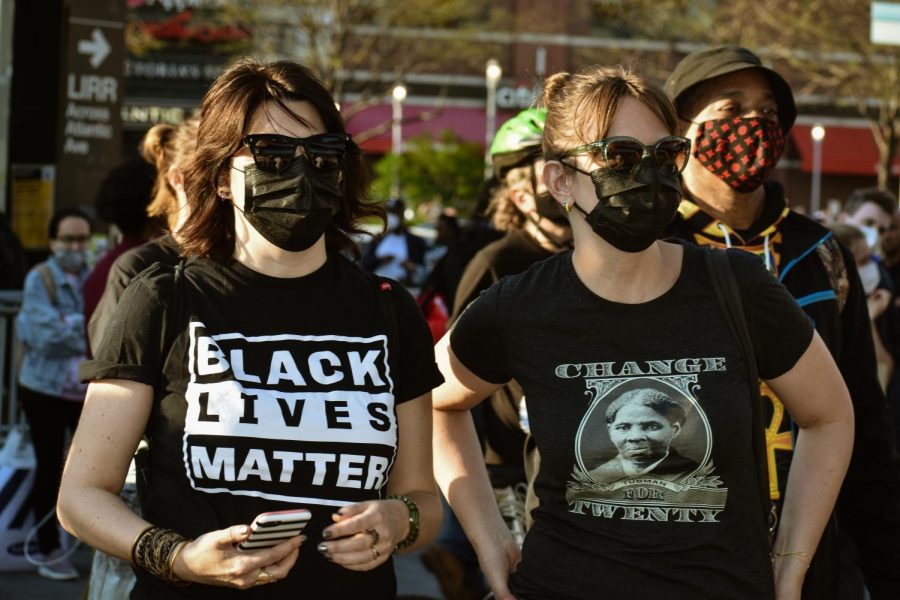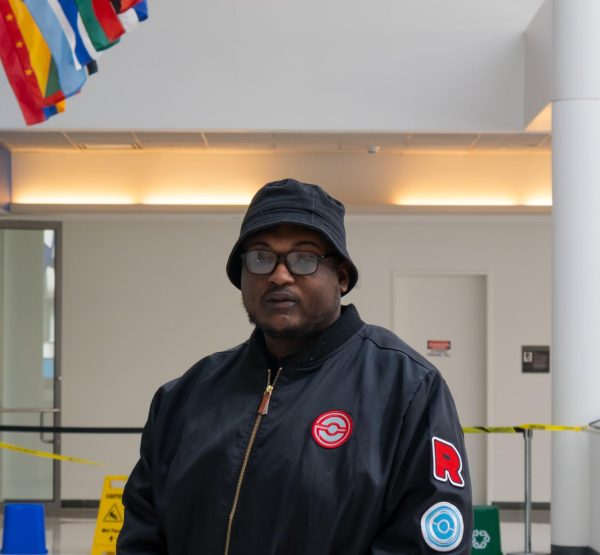Derek Chauvin’s verdict is the starting line toward true change
April 28, 2021
America’s complicated relationship with race and the police played out during the COVID-19 pandemic and was put in the spotlight during the trial of Derek Chauvin.
While Chauvin’s guilty verdict was a pleasant surprise for the country, his trial means that the fight for systemic change is far from complete.
On April 20, a jury found former Minneapolis Police Officer Derek Chauvin guilty on all of the charges he faced over his murder of George Floyd in May 2020. The charges included unintentional second-degree murder, third-degree murder and second-degree manslaughter.
The world witnessed in horror the video of Chauvin pressing his knee in Floyd’s neck as he laid onto the street handcuffed spread around social media.
After the verdict was announced, Chauvin expressed shock as if he were not supposed to be punished for his crime. Chauvin’s facial expression is not surprising at all.
His expression sums up the racial inequality in the U.S. judicial system. When white people face trial for their crimes, they expect to get off, following the precedent of court cases failing to prosecute them, a note that people on social media pointed out.
“Derek Chauvin’s face tells you everything you need to know about this so called ‘justice’ system. This murderer was genuinely surprised to be found guilty. I have no words,” a Twitter user tweeted.
It was Floyd’s death, along with the tragic deaths of both Breonna Taylor and Ahmaud Aubrey, that were the catalyst for the 2020 summer racial justice protests and since then, millions of people across the nation have called for police reform and accountability.
One thing that we can leave before the nation ventures onto its hopeful path of true systemic change was U.S. House of Representatives Speaker Nancy Pelosi’s statement on the trial. Pelosi spoke at an event with the Congressional Black Caucus, where she called Floyd’s death a “sacrifice.”
“Thank you, George Floyd, for sacrificing your life for justice,” Pelosi said. “For being there to call out to your mom, how heartbreaking was that and because of you . . . your name will always be synonymous with justice.”
Floyd’s death was a tragic one but calling it a sacrifice was a slap in the face to the Black Lives Matter movement. It was a terribly constructed sentence to come from the house speaker.
The deaths of unarmed Black men in America are not sacrificial. They are murders that should not be happening.
Chauvin’s guilty verdict is a verdict people have been waiting to hear for a year. Pelosi had months to ponder what her statement would be in the event Chauvin was found guilty. For someone to make a mistake in a critical time is unacceptable.
America wants people to heal from the last year of pandemic struggles and racial division, not just on a physical level but on a mental level as well. Passing the George Floyd Justice in Policing Act is a start to the healing process.
This bill tackles a wide range of policies about law enforcement practices and accountability. It calls for a national registry of police officers who have had a history of misconduct while working in enforcement agencies, according to NBC News.
One of the key missions in the Black Lives Matter movement is calling for Congress and other officials is to hold police officers accountable in shootings involving unarmed Black and brown people.
Passing the bill is the start of accountability. It is easy to say that justice has been served for Floyd because, in a rare case, a white police officer was found guilty of killing an unarmed Black man — but America must wait for what happens after the guilty verdict.
Thousands of people cheered for Chauvin’s guilty verdict, an emotional reaction that is justifiable.
But Chauvin’s guilty verdict is not a call to celebrate. It is a call to action on proper police reform and holding law enforcement accountable for their actions.








